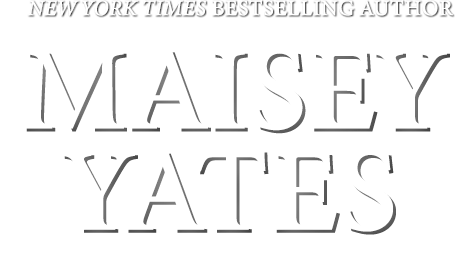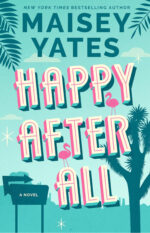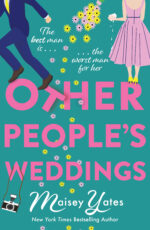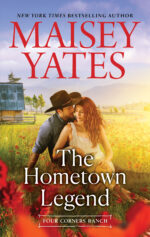A Complicated Post About Process
I say complicated because I’ve been musing, and taking in several opinions on the subject and really…nodding along with most of them. I say complicated because everyone is different, and every writing process is somewhat different. And, if you’re like me, every book is different.
Here are some things I believe about process: We all have a natural process. For some of us, this process works swimmingly. Some of us have a process that doesn’t work well. If that’s the case, you can change is, but it may not be easy.
There is always a debate between Plotter v Pantser. And then there’s the general distrust and stank eye directed at ‘fast’ writers.
All of the above is, IMO, short-sighted at best. Plotting works best if you’re a plotter. Pantsting works best if you’re a pantser. If pantsing doesn’t work for you? Well then, I’m sorry to say you probably DO need to learn to plot. On the flipside, if you’re getting a lot of editorial feedback about characters being wooden and stock, maybe YOU need to ditch the character sheets and approach character in an organic manner. (I use that as an example because I had a Presents ‘set aside’ at partial stage a loooong while back and it was the one time I used character sheets, and I think it failed me there.)
YES. No matter what approach you take to writing naturally, you could learn another way. We’re adaptable like that. It’s pretty awesome. But if pantsing works for you? Then there’s no need. If that makes sense.
I’m essentially a pantser. One who tends to know their characters and character arcs and internal conflicts from the get go. But in terms of the story? Yeah, I don’t so much plot that. And even the character stuff I don’t chart or anything. And it’s something that’s served me well for 23 books. Maybe it will change someday. Maybe my process won’t work for me forever. But I can’t worry about that now, and if someday I come to that bridge, I’ll have to learn to cross it. It won’t do me any good to say BUT I’M A PANTSER, because ultimately the method doesn’t matter as long as the result is solid. So I can’t be too married to a process, nor can I make it my ‘ideal’ way to write a book.
The ideal way to write a book is the way that gets it DONE and done well.
So now we come to speed. Yes, indeed. Here are some things I believe about speed: You can probably write faster than you think. (I say probably, girl, I don’t know your life. Remember that.) Fast writers aren’t always just vomiting garbage onto a page. Some fast writers are and they’re editing it later. Whatever speed you write at has to be sustainable. It has to enable you to meet your deadlines, and it has to not make you crazy insane.
My speed has increased since I first started writing. I think it’s because when I started structure and craft were a struggle, and now structure and craft are becoming, for lack of a better way of putting it, more second nature. Now, some books are faster and some are slower. But then, I also plot some books more than others.
For me, the faster I write, the better a book is going. The more solid it is in my head. The fastest Presents I wrote had some of the most minimal revisions, but for me, that was because everything had aligned perfectly. My slowest Presents was my last total rewrite. For me, a faster speed has never spoken to a lower a quality. But that’s how it’s been for me.
I also wrote a novella at a fairly breakneck pace and sent it off to my agent. That novella is, I believe, responsible for the sale of my Silver Creek series to Berkley.
But the important thing is that I enjoy the pace I’m working at. It enables me to meet deadlines and, yes, I do have a social life. It plays to my strengths.
I think ultimately, that’s the key. Finding the process that plays to your strengths. You might have to play with a few different ideas or methods. You might be able to work up to higher daily word counts and find it’s completely possible for you, and that you enjoy writing more in a day. You might find that a messy first draft is something that really works for you. You might find that you’re one who HAS to edit as you go so you don’t build off of a foundation that isn’t solid.
I have done all these things and found they worked for different books. Another reason it’s good to be flexible. Sometimes different books require a different method.
The bottom line of this is, no process is sacred. Not even yours. Not even mine. And I think we all possess the power to change it if we NEED to. Or not if we don’t.
If you have any questions, feel free to ask! (or just comments…comments are welcome too!)
Happy writing.
Comments
13 Responses | TrackBack URL | Comments Feed








Wonderful “discussion” post, Maisey. Thanks! So when you are writing fast, are you editing a bit as you go? Would you mind just explaining in a bit more detail how that works for you, writing fast, I mean? Do you read the previous day’s writing and maybe tweak it a little, for example? Or just flat out write until “The end?” Are you breaking up chapters and writing it like a book, or just typing in one huge document?
Thanks, again!
Cathy, with editing as I go…it depends. Sometimes I don’t feel like I have a total grasp on the characters because I need to write more, in which case I just write forward. But sometimes I feel like I’m missing something vital and if I don’t go back and add it, it will mess up the rest of the book. In that case, I edit. But this is for major story stuff and not necessarily prose and word repetition, etc.
I do not read the previous day’s writing. Not in full. I just up and see where I’m at to remind myself and then I press on. I try to stop writing in the middle of a scene, or at least after starting a new scene, at the end of the day so that I’m not sitting at my computer wondering what comes next when I start work the next day.
I write in one document, I do use chapters. I write linear, beginning to end because for me I have to know what came before so I get the emotion right in the following scenes.
If I’m to the point where I want to finish a book by a certain point, I decide either the night before, or in the morning, how many words I want to write in the day. Say I want a 5K day, then I plan how I’ll get it done. It helps if I have an idea of what I want to write before I sit down. I know how many words I can do in an hour, so I’ll purpose to do 3k in the morning, then do my family stuff during the day, and do another 2K after the kids go to bed. Just as an example. I’m not a routine person so I mix it up.
Got a lot from your post, Maisey. Love how you say the way that works is the way that it gets done. I tend toward the pantser end of the spectrum myself.
Maggie, thank you! At the end of the day, it’s not right or wrong. It’s what works and what doesn’t, and the answer to that is different for every person.
Great post and and an interesting insight into your writings and organisation. I’m a plotter through and through but always enjoy hearing how others structure their books.
So true—some stories you have to plot more and others you can pants straight through. And I agree that the stories I was able to write the fastest required the least revising. However—I dont think it was the fast writing that made the story good. I think that stories just had a clearer kernel to them. Like, good chi or something. The conflict was straightforward and inherent enough that the stories wrote themselves. I was just keeping up.
Overall, I’m a fast writer. Ish. But other than those books that write themselves, I need to give myself time to stop and think. That usually amounts to keeping it to 3-4 K a day when I know I could do 5. That way I don’t write myself off a cliff and end up with a giant rewrite on my hands.
But yeah, process changes. It’s ever evolving. I’m working on my 21st story, my second full length and all I can gleam is that I have to plan/plot more for longer stories. Oh, and that I like using post it notes because I can move them around.
If I ever get my process fully down, I’ll be the first to market and sell that puppy. 🙂
D
Great post. I think there’s far too much importance placed on the “process” of things. I mean, OK, yes, the nature of the universe, human beings included, is propagated by a series of algorithms, and writing is only one of a hundred million of those algorithms, so it’s not like the concept of “process” is bunk or anything.
But there’s a difference between looking at the parameters that result in peak writing performance, and trying to accomplish what someone else has accomplished by doing what they do.
I used to be so so so bad about this. In my late teens, I read an article in which one of my favorite authors admitted she wrote very quickly–five to seven thousand words a day, putting out eight to ten books a year–and rarely edited before sending it off to her agent. I spent a year or two convinced that’s what I would have to do to be successful. You can imagine my disappointment when it so did not work. Because the way I hit my writing groove and the way she hits her writing groove are totally different, and by trying to achieve things her way, my own creative process was starving to death.
Another thing is that “process” can be used as a crutch. A while ago, I had a friend who was all, “I’m stuck! Help!” only nothing I suggested fit with her “process”. She wasn’t rude about it or anything, but there was so much resistance when it came to approaching the problem in new and different ways. I think, as a writer, you need that. Like you said in the post, every writer has his or her own way of doing things, and every book has its own way of doing things. So it’s important to be flexible, and be willing to look at cause and effect. If your process is generating thousands of words a day, great. But if after a week or two you’re still getting nowhere, it might be time to look at whether or not the “process” needs to be adjusted.
Joanne, we’re all different! 🙂
Daisy, that’s totally how it is for me. I think when I’m faster, the story is more concrete and fully formed in my head, so putting it on the page is less of an ordeal, and as a result, it’s also better when I turn it in.
And what you’re saying re your speed is such a great example of understanding yourself and learning what really works for you.
Liz, I’m inclined to agree with you. I’m hard pressed to sum up my exact ‘process’ as it is quite fluid. For me, it’s all about what works at any given moment.
I also know what you mean re your friend and her ‘process’. I’ve had advice received that exact way. Sometimes writers say they need advice and they’ll try anything…unless it’s outside their process. But sometimes it’s your process that’s broken. I mean, if you can’t finish a book, or writing it is painful, then why would you stick with that process?
Process isn’t a sacred thing. It’s the method by which we produce the work. At the end of the day, the work is the most important thing, isn’t it?
Insightful comment.
I love the idea of letting process be nothing more than the method by which crap gets itself done.
Something else: sometimes the process you’re born with isn’t the one you want. My process is very chaotic, and I hate that it’s chaotic. I wish it were more like your process, actually, where you make out a plan and then stick to the plan. But it isn’t, and though I do pull it back from being the frenzied, hypomanic up-all-night compulsion it wants to be, if I tried to force it into the nine-to-five box, it wouldn’t work. And that’s OK. You have to make peace with that and work with what you’ve got, whether it’s no time, or kids, or shoddy equipment, or unfavorable conditions…whatever. It’s about working with your innate process of getting things done, not trying to change it so that you get things done like someone else.
My head is spinning! but I’m not confused… I don’t think 🙂 Your process is obviously working for you. And I think I’m learning to embrace mine too – whatever it is 🙂
Great post. I’m trying out Scrivener for NaNoWriMo and found I needed to do an outline to work with it which has been fine. I just change the chapter headings as I go to reflex the things I did or didn’t do in that scene. 😉 I like to write linear as it goes. I have a couple of partials I’ve jumped around in but I’m going to have to go back and fit them into a linear structure. I’m thinking Scrivener might help with them. Not so sure when I’m in pantster mode.